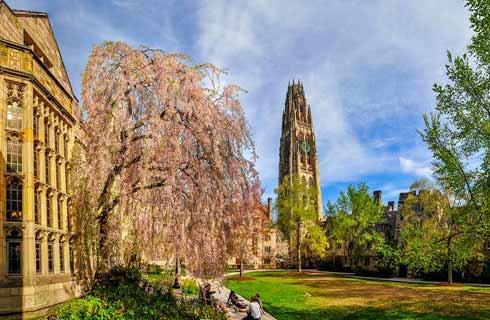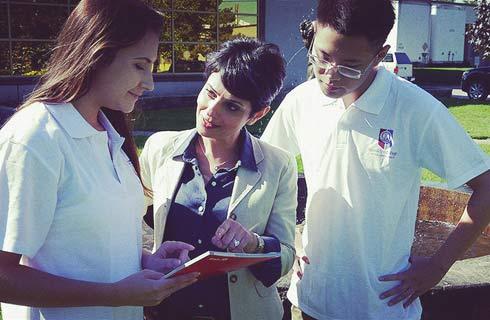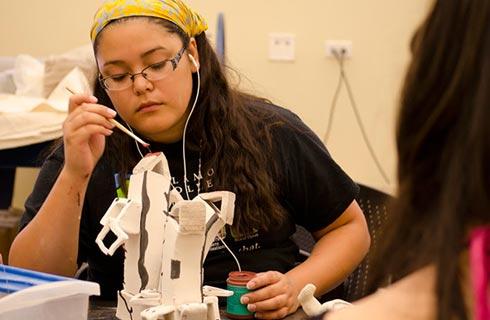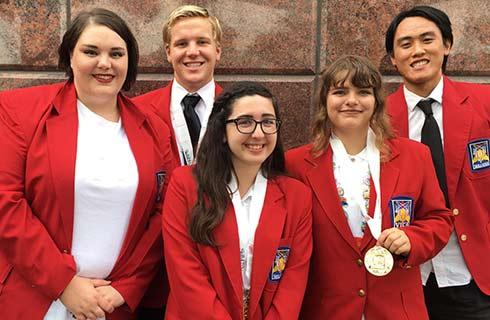大众文化文学士学位(及格)
Bachelor of Arts in Popular Culture (Pass)

学历文凭
Bachelor Degree

专业院系
The Department of Communication, Popular Culture and Film

开学时间

课程时长

课程学费

国际学生入学条件
IDP—雅思考试联合主办方

雅思考试总分
6.5
- 雅思总分:6.5
- 托福网考总分:88
- 托福笔试总分:160
- 其他语言考试:PTE - 58
CRICOS代码:
申请截止日期: 请与IDP联系 以获取详细信息。
课程简介
The Department of Communication, Popular Culture and Film offers four separate programs of study: Business Communication, Media and Communication Studies, Film Studies, and Popular Culture. A four-year program leading to the BA Honours degree, a 4 Year BA with Major, and a three-year program leading to the BA Pass degree is offered in all four programs. In addition, the Department is involved in programs with community colleges which offer students the opportunity to earn an honours degree in Popular Culture and a college diploma or certificate.Popular Culture Studies is an interdisciplinary undergraduate program that brings together theoretical and analytical perspectives from the humanities and social sciences. These varied approaches inform our understanding of popular culture as expressed through social media, advertising, music, popular cinema, sport, television, video games, as well as non-mass mediated cultural forms like fairs and festivals, food and drink, tourism and travel. We study these expressions of culture within their cultural, economic, political, and social contexts, past and present.
相关申请
 预科
预科 奖学金
奖学金 实习机会
实习机会 在校学习
在校学习 跨境学习
跨境学习 校园授课-线上开始
校园授课-线上开始 在线/远程学习
在线/远程学习
开学时间&学费
学费信息仅供参考,请与IDP联系以获取详细信息
| 开学时间 | 时长 | 学费 | 地点 |
|---|
关于布鲁克大学

布鲁克大学位于加拿大生机勃勃的圣凯瑟琳斯市,是一所有着近60年教育历史、高瞻远瞩的公立研究型院校,为学生提供丰富的学术知识和大学生活。布鲁克大学开设有本科和研究生课程以及各种受到评鉴机构认可的职业培训课程。全校大约有1.9万名学生,其中约1.7万名是本科生。该校拥有加拿大第五大合作教育计划,还提供精彩的项目和实践学习机会。布鲁克大学拥有一个由大约2500名学生组成的充满活力的国际学生群体,他们代表世界各地的不同民族和文化,将各种观点和生活方式带到校园中来。布鲁克大学位于令人叹为观止的尼亚加拉地区,距离自然奇观尼亚加拉大瀑布只有几分钟路程,是加拿大仅有的几所位于联合国教科文组织生物圈保护区中的大学之一。该地区有许多值得探索的美丽的自然景观,一年四季都有精彩刺激的户外活动。布鲁克大学提供一系列出色的学生服务,注重学生身心健康,给予学生大量学习方面的支持和帮助。该校的心理健康服务连续三年在加拿大名列榜首,学生满意度也一直位居加拿大前三名。该校为学生提供大量经济资助选择,其中包括奖学金、助学金和政府资助计划。
本校相关课程
其他相关课程

民族研究文学学士学位
 夏威夷大学马诺阿分校
夏威夷大学马诺阿分校学历文凭
Bachelor Degree
开学日期
课程费用总额


妇女和性别研究文学硕士(非洲研究)
 卡尔顿大学
卡尔顿大学泰晤士高等教育世界大学排名:511
学历文凭
Masters Degree
开学日期
课程费用总额


Bachelor of Arts in Race and Resistance Studies
 旧金山州立大学
旧金山州立大学学历文凭
Bachelor Degree
开学日期
课程费用总额


Bachelor of Arts in American Studies
 德克萨斯大学达拉斯分校
德克萨斯大学达拉斯分校学历文凭
Bachelor Degree
开学日期
课程费用总额


Bachelor / Master of Arts in Modern Culture and Media
 布朗大学
布朗大学泰晤士高等教育世界大学排名:65
学历文凭
Combined Baccalaureate and Master's Prog
开学日期
课程费用总额


Bachelor of Arts in Human Development - Women's Development
 加州州立大学东湾分校
加州州立大学东湾分校学历文凭
Bachelor Degree
开学日期
课程费用总额
















